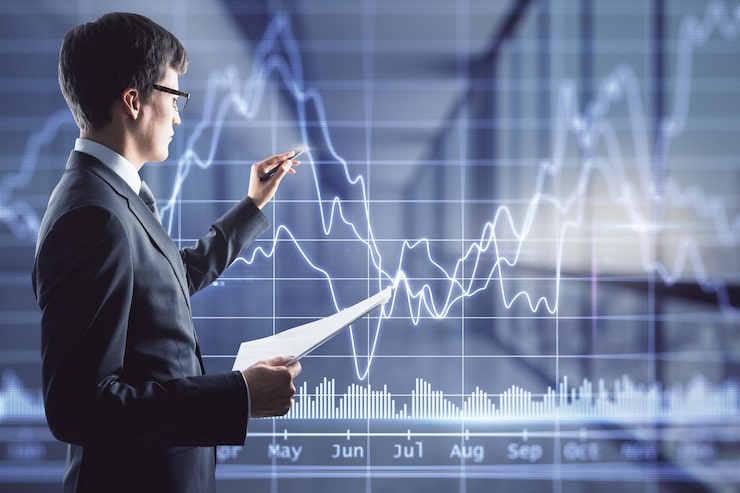
Volatile markets have become the norm thanks to the COVID-19 outbreak. That volatility also creates chances for investors, even in a stressful time. I don’t mean to downplay how awful this virus is—I hope we all get through it safe—but maybe we can find a little advantage in the stock market along the way.
For most of my career I’ve done what many do with the market: mostly ignore it. I have a 401(k) and money automatically goes in every two weeks. Dollar-cost averaging, check.
When we had extra cash—rare, between mortgages and student loans—I put it into real estate. Those “extra” funds weren’t cash sitting in a bank; I used home equity for down payments on rentals and Airbnb condos. Nothing like risking the roof over your head for a profit. It worked.
I’ve made dumb moves, too. I tried picking stocks like I was starting my own fund. I hit a winner with Netflix early on, but I badly misread BP after the Gulf oil spill. That was my cue to stop trying to outsmart the market and go back to the safety of the 401(k). Peter Lynch I am not.
Lately I’ve decided to start a new money play: a retirement gap-year fund. A volatile market can be an opportunity, especially if you’re trying to retire early. Stocks have generally climbed for years, with occasional corrections, but we hadn’t seen one like this in a long time. The Dow has plunged over 1,000 points several times in recent weeks.
Timing a dip is always uncertain. You wonder, “Is this the bottom?” I usually don’t follow the market closely, but with coronavirus headlines I find myself checking several times a day. That forces you to notice market floors and ceilings. There are psychological and functional levels of resistance. The Dow could fall below 25,000, and lately it has shown it can go a lot lower than that.
As someone new to putting extra cash into the market outside regular contributions, I’ve turned a bit into a gambler. I’ve set my own rules for putting chunks of capital to work.
I like Vanguard’s ETF VTI (Vanguard Total Stock Market). In short, it tracks the CRSP US Total Market Index, covering roughly the whole investable U.S. stock market—large, mid, small, and micro caps. The fund samples the index and holds a diversified group of securities so the overall characteristics—industry weightings, market cap, price/earnings, dividend yield—look like the full index.
VTI is an ETF, so you can buy and sell it intraday. In fast markets that matters: if VTI drops to $148 while you’re at your desk, you can jump in right away. That’s not true for some mutual funds. For example, VTSAX at Vanguard holds very similar stocks, but it’s a mutual fund, not an ETF, so you can’t trade it during the day—you place an order and get the next morning’s price.
VTI has been my favorite lately. It peaked around $171 before the COVID-19 selloff and has been around $150. I’m not a certified financial planner and I’m not telling you to follow my moves. This is a risk, especially compared to steady dollar-cost averaging.
So far I’ve used VTI’s dips to buy several $5K blocks and one $10K block in our taxable brokerage account to fund our early-retirement gap year. I also maxed out my 2019 and 2020 IRAs in VTSAX because the mutual fund has an auto-invest feature (ETFs don’t). The IRA is where the kids’ college money lives—I’m hoping this correction helps fund higher education in about a dozen years.
I’ll report how this experiment goes. My first goal is to get through the health crisis; after that, with optimism, I hope bargain buys in the market pay off.
Even as I write, markets look like they might fall more—oil is crashing and COVID-19 cases are rising. It seems the president’s early optimism about only a few cases was misplaced. I’ll keep watching for chances to “lay more brick” as prices correct. VTI could fall to $125 or lower, but markets have also rebounded quickly in the past decade. The basic advice still stands: buy low, sell high. Right now it’s all about buying low.
What strikes me is how much Americans love to speculate. It’s woven into our culture. If you want big wealth and to reduce taxes, you usually need a high risk tolerance and some financial knowledge. Many smart professionals—doctors, lawyers, scientists—lack financial literacy. Professional athletes are a common example of people who can make a lot and still go broke.
I’m grateful I understand compounding, fees, index funds, and real estate diversification. It took time to learn. But many people don’t pick this up on their own. We should make financial basics easier to access so more people can pursue financial security, not only the few who figure it out themselves. Schools don’t teach personal finance the way they should.
My kids are learning to save because we talk about it at home, but not every child has parents who can teach that. Also—wash your hands and stop touching your face. If you’re on the front lines, thank you and stay safe.
Epilogue: A week later the situation changed fast. The market showed it can drop much farther than 25,000 and VTI may well fall below $125. Two keys to surviving this turmoil: patience—this too shall pass; we may enter a recession, but we will learn, recover, and move on—and love. Call elderly relatives, check on friends, be a good neighbor, and keep your distance to save lives. Don’t hoard hand sanitizer or toilet paper. Now isn’t the time for selfishness.
